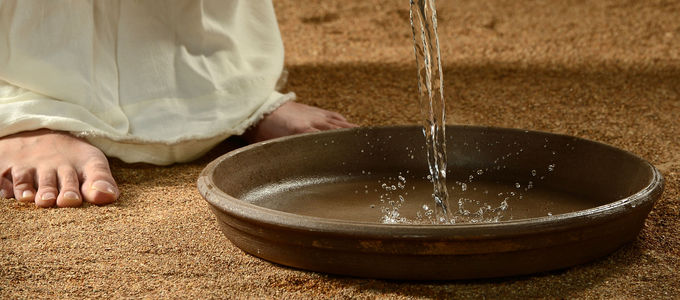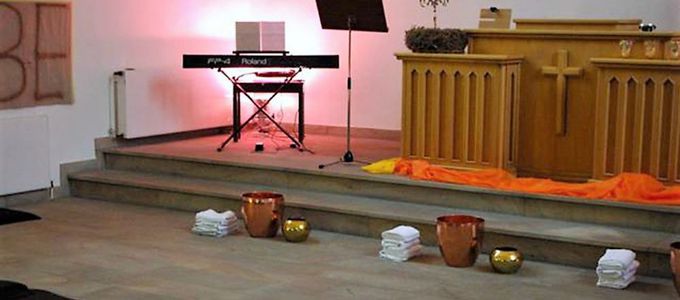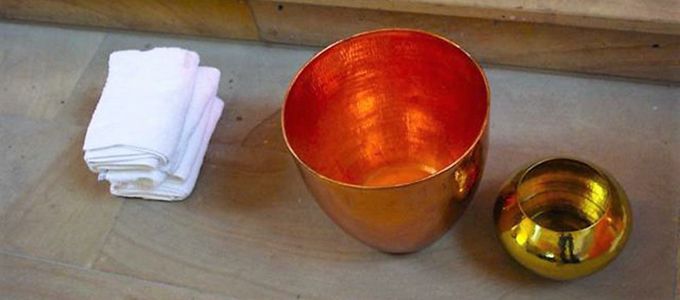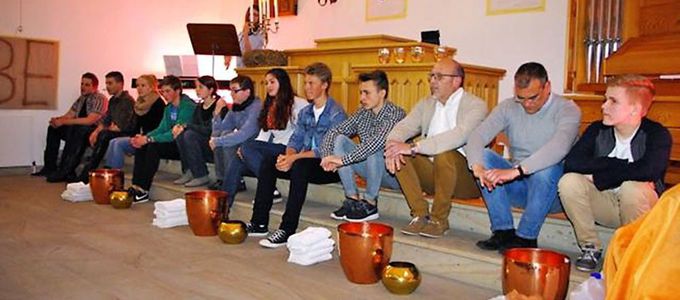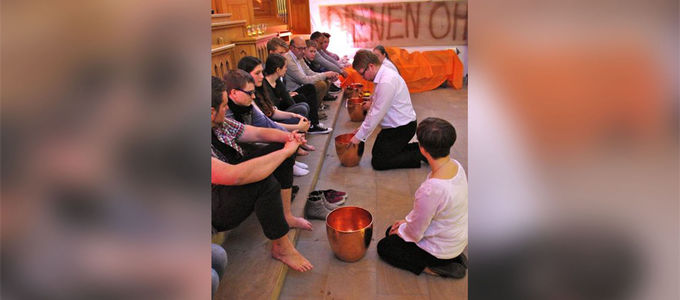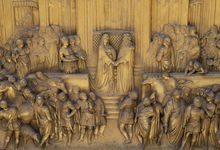Mandatum novum do vobis: A new commandment I give to you
“It took ages,” says Michael. He is one of a group of youth, who re-enacted the washing of the feet on Maundy Thursday. “I thought it would go a lot faster.” We can draw lessons from this all the more.
John is the only gospel which carries the account of Jesus washing His disciples’ feet. John mentions it in the context of Jesus’ so-called farewell discourse. The Master is preparing Himself for His crucifixion. Before, however, He wants to set an example and show His disciples some important things. They will need it when He is no longer with them.
“Amazing Grace” resounds in a silent church
The youth have written a kind of script. Twelve of them are sitting on the bottom step of the altar. Twelve because it is a significant number and stands for the twelve disciples. Four others have agreed to do the actual washing of the feet.
Water is poured from copper vessels into a bowl and twelve towels are distributed. Those sitting on the steps of the altar take off their shoes and socks. Their feet are sprayed with water, then water is poured over them, and finally they are dried. Twelve left and twelve right feet: baring the feet, washing them, drying them, and putting the socks and shoes back on.
This is how they come together: those who are having their feet washed and those doing the washing. The other young members from the district are sitting in the church watching the scene. They are very quiet. Nobody says a thing. A young woman sings “Amazing Grace”. Andreas accompanies her on the keyboard.
“It took about ten minutes,” the young people say. “It blows your mind!” The re-enactment is followed by reflection and what the actual deep sense of this event in the gospel of John is.
Hospitality and symbolic act
In antiquity, hospitality was something that was highly valued. The host would hand the visitor something to drink and to eat and washed his feet. They were dirty from the long journey. Sturdy footwear as we know it today did not exist then. Only sandals with wooden or leather soles. The washing of the feet was therefore a common hygienic practice.
Even if this is very remote for us today from a cultural aspect, this act has two implications for us as Christians today.
First of all Jesus kneeled to wash His disciples’ feet. We are to do the same and serve each other: “Mandatum novum do vobis – a new commandment I give to you!” This new mandate of peace reads as follows: Those who serve others will not deceive them or badmouth them or yell at them or do a number on them. It is better to serve than to dominate. And it is better to love than to oppress.
On our pilgrimage through this world our feet of faith become dirty. Sure, we have been cleansed through the washing of rebirth. The most essential aspect has been taken care of, but: “He who is bathed needs only to wash his feet, but is completely clean; and you are clean, but not all of you” (John 13: 10). This shows us that regular cleansings are important so that all the dirt and dust we have gathered on our way is washed off.
Here are two thoughts to take along: the call to serve our neighbour every day; and the reference to the renewed cleansing through the forgiveness of sins in divine service.
Article info
Author:
Date:
Keywords:
Peter Johanning
20.04.2017
Bible Study
, Divine service,
Doctrinal instruction


